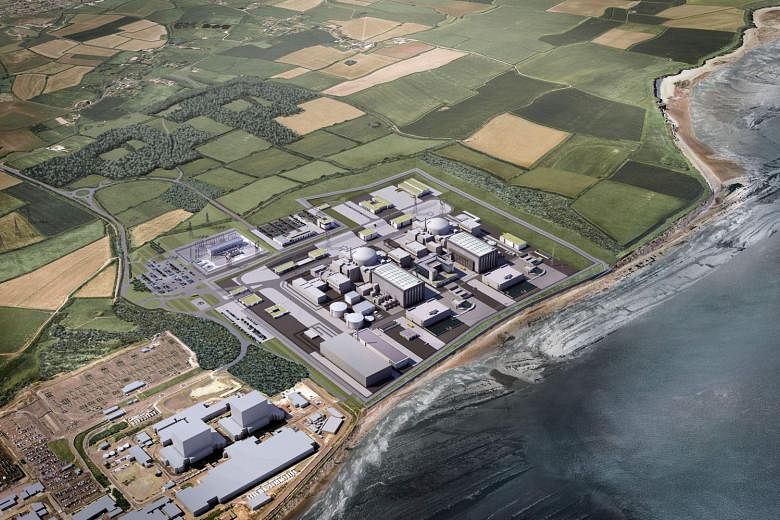LONDON • The decision of the new British government to postpone a deal on a nuclear power station, to be built by France with Chinese investment, has shocked the two countries, signalling a major step away from the policies of former prime minister David Cameron.
Prime Minister Theresa May's decision not to sign the deal, reportedly on security and economic grounds, has angered both Paris, which will be crucial to Britain's future relations with the European Union after the country's vote to leave the bloc, and Beijing, which Mr Cameron had cultivated aggressively for investment and trade ties despite criticism that he was subordinating human rights and geopolitical concerns to commerce.
A signing ceremony had been planned for last Friday on the Somerset coast, the site of the proposed Hinkley Point C nuclear power station. It was designed to produce 3,200 megawatts with two new French EDF reactors at a cost of at least £18 billion (S$32 billion).
But late on Thursday night, Downing Street said it would not sign the deal. Travel by French and Chinese officials to Somerset was cancelled.
While Downing Street said Mrs May had earlier told French President Francois Hollande she would be postponing the signing, the EDF board was taken by surprise.
Mrs May told Mr Hollande her new government wanted to look at the deal again. Since then, it has become clear that her main concerns are with the Chinese involvement, and she seemed to be signalling an end to Britain's willingness to be China's best Western ally in return for Chinese investment.
Having served as home secretary for six years before becoming Prime Minister, Mrs May is security minded and had expressed concerns in Cabinet meetings during the Cameron administration about bringing Beijing into such a sensitive project. The project is meant to provide about 7 per cent of Britain's electricity needs.
She was also reported to have been unhappy on security grounds when British Telecom agreed to a deal with the Chinese telecommunications company Huawei.
While China is funding just over a third of the Hinkley Point project, the real advantage for Beijing is that the deal offers China a chance to build and operate a nuclear power plant of its own design at another site, in Essex. That reportedly troubles Mrs May because it could give China control over an important part of Britain's energy supply.
On Monday, China reacted angrily. The official Xinhua news agency published a commentary arguing that the delay "adds uncertainties to the 'Golden Era' of China-UK ties" and suggesting that further Chinese investment in Britain could be rethought.
NEW YORK TIMES

